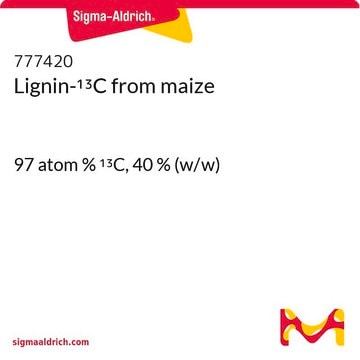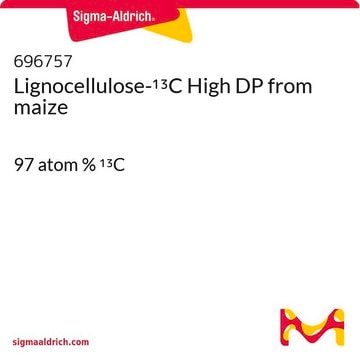Recommended Products
form
solid
mol wt
average Mw ~10,000
impurities
4% sulfur
pH
10.5 (3 wt. %)
application(s)
coatings
Looking for similar products? Visit Product Comparison Guide
Related Categories
Application
Primary dispersing agent for dyestuffs and agricultural chemicals.
Features and Benefits
Compatible with anionic and nonionic surfactants and wetting agents. Contains no reducing sugars
Storage Class Code
11 - Combustible Solids
WGK
WGK 3
Flash Point(F)
Not applicable
Flash Point(C)
Not applicable
Personal Protective Equipment
dust mask type N95 (US), Eyeshields, Gloves
Certificates of Analysis (COA)
Search for Certificates of Analysis (COA) by entering the products Lot/Batch Number. Lot and Batch Numbers can be found on a product’s label following the words ‘Lot’ or ‘Batch’.
Already Own This Product?
Find documentation for the products that you have recently purchased in the Document Library.
Daniel Pletzer et al.
International journal of pharmaceutics, 596, 120299-120299 (2021-02-02)
Due to the increasing inability of antibiotics to treat multidrug-resistant (MDR) bacteria, metal and metal oxide nanoparticles have been gaining interest as antimicrobial agents. Among those, silver nanoparticles have been used extensively as broad-spectrum antimicrobial agents. Here, we describe a
Anil Kumar Singh et al.
Frontiers in microbiology, 10, 2364-2364 (2019-12-12)
Various chemical compounds emerged including kraft lignin (KL) during the processes of papermaking. These chemical compounds in effluent of the paper industry have hazardous environmental impacts. KL is liable for causing pollution of aquatic and water bodies; hence, it must
S Gouveia et al.
Bioresource technology, 121, 131-138 (2012-08-04)
The potential ability of the laccase from Myceliophthora thermophila, either alone or with low molecular weight (LMW) additives, to polymerise a dissolved lignin from Kraft liquor of eucalypt cooking was investigated. A previous study of enzymatic performance (activity and stability)
Thiranan Kunanopparat et al.
Journal of agricultural and food chemistry, 57(18), 8526-8533 (2009-08-25)
The effect of Kraft lignin (KL) on wheat gluten (WG) network formation during biomaterial processing was investigated. Gluten plasticized with glycerol was blended with a variable content of KL and processed into material by mixing and hot molding. The effect
Yong Sik Kim et al.
Biomacromolecules, 11(4), 981-988 (2010-03-02)
Copolymerization of N-isopropylacrylamide (NIPAM) with technical hardwood kraft lignin (HWKL) was achieved by atom transfer radical polymerization (ATRP) using a selectively modified lignin-based macroinitiator. The degree of polymerization (DP) of polyNIPAM graft side chains was affected by varying the ratio
Our team of scientists has experience in all areas of research including Life Science, Material Science, Chemical Synthesis, Chromatography, Analytical and many others.
Contact Technical Service








